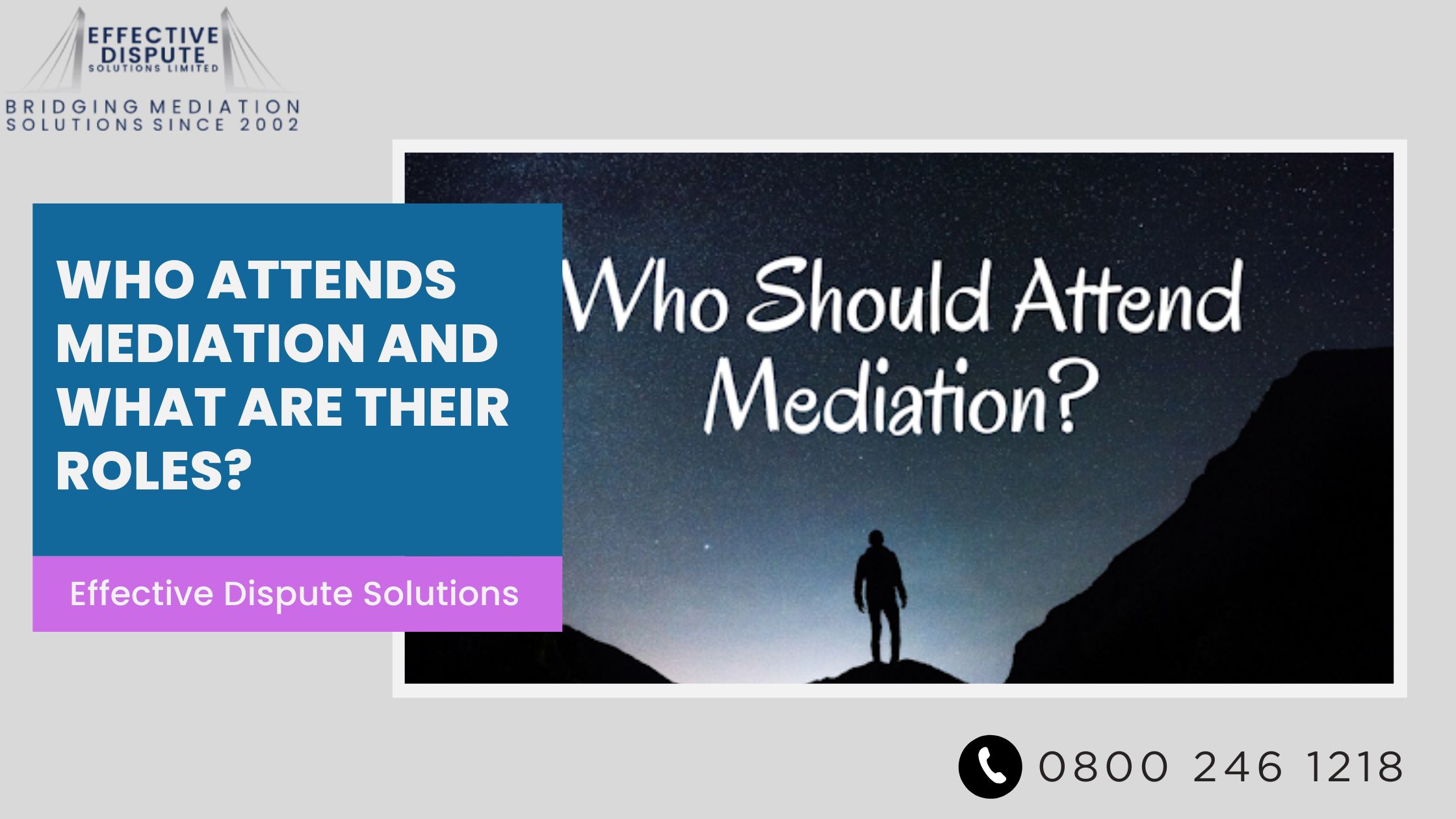Dragging a dispute through court can feel like watching paint dry. It’s slow, expensive, and full of red tape. Think of the time you lose. Instead of spending it with your loved ones or doing what you actually enjoy, you’re tied up in legal drama. But there’s a better way. Mediation cuts through the stress. It’s quicker, more affordable, and a whole lot more human.
Now, if you’re new to this, you might be wondering who actually shows up at mediation. What do they do? Why are they there? Let’s break it down and get to know the participants in mediation.
Key Participants in Mediation and What They Do
Understanding the participants in mediation helps make the process smoother and less stressful. At the core, you’ve got the mediator: neutral, calm, and trained to guide both sides toward resolution. Then there are the parties involved in the dispute. Their role is to speak openly, listen actively, and work towards an agreement.
Solicitors may attend too, offering legal advice and reviewing any agreements. In some cases, an expert might join to clarify technical issues. Everyone in the room has a role, and when each plays it well, mediations becomes a practical, effective way to resolve conflict.
The Mediator: Your Neutral Guide
The role of the mediator in the mediation process is central. This person isn’t a judge, and they won’t take sides. Their job is to guide the other participants in mediation towards a solution. Think of the mediator as a referee, but one who’s there to help you sort things out.
They don’t make decisions. They don’t give legal advice either. But they will keep things calm, manage the flow of conversation, and ensure both sides are heard. The role of a mediator also includes encouraging compromise and creative thinking, especially in complex cases like boundary disputes. In short, the role of a mediator in a negotiation process is to act fairly and keep the dispute moving forward.
The Parties: The Ones With Skin in the Game
This one’s obvious. The role of parties in mediation is to talk, listen, and work towards a resolution. These are the people in conflict. It could be a business owner and a client. An employer and an employee.
If you’re wondering, do both parties have to attend mediation? The short answer is yes. Mediation only works when both sides show up. If one side refuses, the process falls apart. That’s why it’s voluntary but also relies heavily on goodwill and a shared goal of ending the dispute.
Still, unlike the court, this isn’t about winning. It’s about sorting it out so everyone can move on.
The Solicitors: There for Legal Backup
You might bring your solicitor to mediation. Their job is to support you, offer a legal perspective, and make sure any agreement you reach is in your best interest.
They don’t run the show. They’re more like a safety net, great to have, especially if the stakes are high. In civil commercial mediation, where agreements are legally binding, having a solicitor can offer peace of mind.
Just remember, mediation isn’t a courtroom. Solicitors don’t argue or cross-examine anyone. They’re there to help you make informed decisions, not score legal points.
Observers and Experts: Occasionally in the Room
Sometimes, especially in technical disputes, an expert might attend. Let’s say it’s about a property line. A land surveyor might join in to give clarity.
Observers are rare, but they do pop up in training or internal reviews of mediator services. If they’re present, everyone’s told in advance and must agree.
What Each Person Brings to the Table
Alright, let’s drill down into what is the role of each party in mediation.
- Mediator: Keeps things on track, encourages, and helps build solutions
- Parties: Share their side, listen to the other, stay open-minded
- Solicitors: Offer legal input, review agreements, and keep clients grounded
- Experts: Clarify complex points (only when needed)
And remember, workplace mediation is not legally binding. It’s more of a trust-based handshake deal. Both sides agree to work things out and stick to the terms because a judge says so.
But in civil commercial mediation, what you agree on is enforceable. So once it’s signed, it sticks.
Where It All Happens
Mediation can be done face-to-face or online. These days, online mediation via Zoom is pretty popular. It’s efficient, saves travel, and .
Effective Dispute can mediate for you within 14 days of contact. That’s two weeks to get the ball rolling. And most cases wrap up in just 4–8 hours. Yes, hours. Not months. Definitely not years.
Why Mediation Just Works
Compared to court or tribunals, mediation is like the fast lane. No formal procedures. No judges. Just a structured conversation, guided by someone who’s trained to help you settle.
You avoid the drama. The expenses. The waiting. You walk away with a solution you helped build, not one handed down from a bench.
It works because people genuinely want to move forward. Especially in boundary disputes, where long-term relationships (and property values) are on the line, mediation lets you preserve respect while resolving the issue.
Want to know more about the types of mediations or need access to trusted mediator services? We’ve got resources and support to help you make the right call.
Conclusion
If you’re dealing with a dispute, big or small, knowing who’s involved and what they’re meant to do can take a huge weight off your shoulders. No surprises. Just a clear plan.
Whether it’s a business fallout, a staff conflict, or a garden fence that’s turned into a battlefield, mediation offers a way out that’s faster, cheaper, and a lot more civilised than court. When the participants in mediation understand their roles and come prepared, the process becomes even more effective. And the best part, you stay in control.
At Effective Dispute Solutions Ltd, we believe in getting things sorted quickly. That’s your life back by dinnertime.


